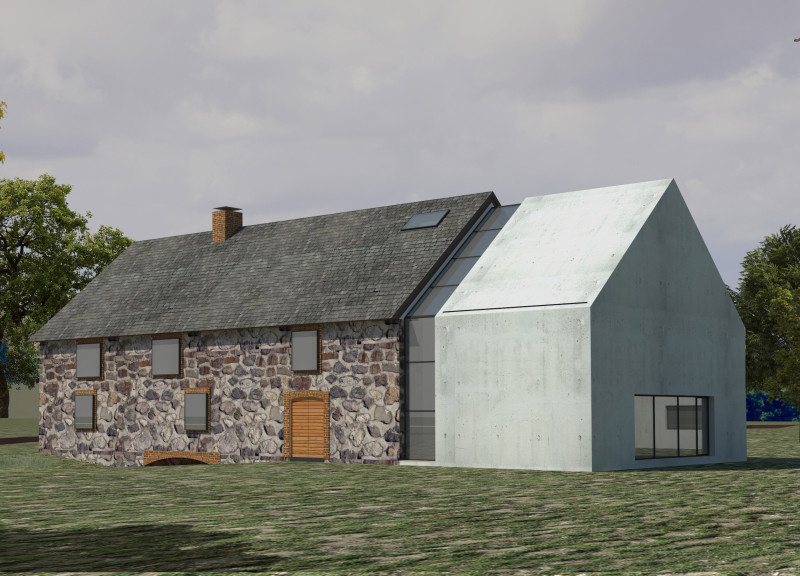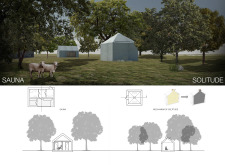5 key facts about this project
## Overview
Located within a tranquil natural landscape, the Meditation Campus is designed to support meditation, solitude, and personal retreat. The layout reflects a deliberate integration of built structures with their surroundings, aimed at providing an environment conducive to peace and introspection amid the demands of modern life.
## Site and Layout Strategy
The campus features a central hub, the Main Building, which combines traditional stone architecture with contemporary minimalist elements. Adjacent facilities include the sauna and solitude structures, each positioned to enhance personal retreats within expansive green spaces. A private residence accommodates individual living requirements while maintaining the project's minimalist ethos. Community-focused recreation and green zones are also incorporated, encouraging engagement and restorative experiences for users.
## Material Use and Sustainability
The project utilizes a variety of materials tailored to the specific requirements of each structure, contributing to both functionality and aesthetic coherence. Natural stone forms the Main Building's facade, honoring local building traditions with its durability and authenticity. Concrete is employed in modern features like the sauna and private house, offering a contemporary balance to the traditional elements. Wood accents in window frames and doors infuse warmth into the environment, while strategically placed glass elements enhance natural light penetration, fostering a connection to the landscape.
The choice of local materials aligns with sustainable design practices intended to minimize environmental impact and reinforce ties to the regional context. This approach reflects the principles of mindfulness and meditation by promoting environmental awareness and a holistic connection between users and their surroundings. The multifunctional design of the campus spaces facilitates a range of activities, from solitary reflection to community gatherings, accommodating diverse user needs and encouraging an immersive experience with nature.























































